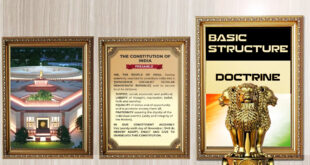A news ombudsman is in a bind when his criticism of journalism is proved right. While there is an element of personal satisfaction, there is also the pain of witnessing professional shortcomings. In my column, “Discussing an editorial” (Dec. 3, 2018), I had expressed my reservations about the editorial “Number theory” (Nov. 30), which I felt had granted the benefit of doubt on the contentious GDP back series data to the government without subjecting the numbers to close scrutiny. The practice of data torture When two members of the National Statistical Commission resigned recently after disagreement with the government on certain issues, including the release of a labour report by the National Sample Survey Office for 2017-18, readers pointed out that the issue of data torture had been addressed in this column. One reader even sent a short sequence from the British sitcom, Yes Minister, to show how data are deliberately suppressed by the government. In the sequence, the Prime Minister (PM) asks his officer: “Suppose the report is cautious?” Sir Humphrey: Well, in that case we don’t publish it. PM: You mean we suppress it? Sir Humphrey: No, we simply don’t publish it. PM: What’s the difference? Sir Humphrey: Oh, big difference! Suppression is the instrument of totalitarian dictatorships. We don’t do that in a free country. The role of journalism is to cut through the rhetorical clutter and help the reader understand the truth. Reports and opinion pieces are together expected to help us understand reality. Reporting is the bedrock of journalism, while opinion pieces provide a certain gravitas to the profession. Opinion pieces immediately resonate with readers, who either agree or disagree with the piece. The opinion pieces that remain in a reader’s memory are those that are also validated by solid reporting. If the findings of a reporter contradict the opinion writer, as a journalist I tend to trust the reporter rather than the expert. German sociologist Max Weber contextualised the role of journalism in relation to academic scholarship. He wrote: “Not everyone realizes that to write a really good piece of journalism is at least as demanding intellectually as the achievement of any scholar. This is particularly true when we recollect that it has to be written on the spot, to order, and that it must create an immediate effect, even though it is produced under completely different conditions from that of scholarly research. It is generally overlooked that a journalist’s actual responsibility is far greater than the scholar’s.” While many recognise the act of verification as the central function of journalism, very few recognise journalism’s role of bearing witness to events. It remains the voice of the people.
Check Also
Joint Parliamentary Committees (JPCs): Scrutinizing the Executive
Introduction In a parliamentary democracy, ensuring accountability of the executive is paramount. Joint Parliamentary Committees …
 Chinmaya IAS Academy – Current Affairs Chinmaya IAS Academy – Current Affairs
Chinmaya IAS Academy – Current Affairs Chinmaya IAS Academy – Current Affairs



